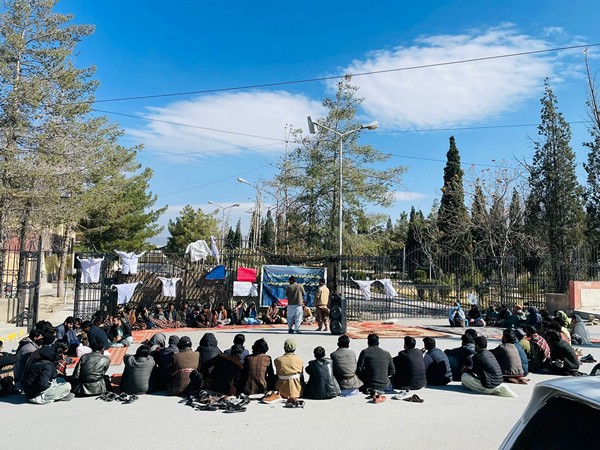Education is essential for every human being. It is the primary responsibility of every state to provide education to its citizens so they can live comfortable lives. According to the constitution of Pakistan, education is the fundamental right of every man and woman and is equally the right of all provinces. Balochistan is the largest province of Pakistan by area, and its capital is Quetta. Moreover, Balochistan is famous for its cultural heritage and tourism. People from other provinces visit Balochistan’s cities for tourism, including Quetta, Gwadar, Jiwani, Pushkan, Sarbandar, and Khuzdar. Almighty Allah has blessed this province with natural resources such as Sui Gas, Saindak, Reko Diq, and Gwadar Port. It is known as an international gateway and for its warm and deep waters. According to analysts, Gwadar Port is a key route for international trade. This is why foreign powers like Oman and China aim to establish their influence in the port and turn it into a hub zone for imports and exports.
Despite Balochistan’s Rich Resources, Its People Face Deprivation
Balochistan is rich in natural resources, yet its people lack basic facilities such as schools, universities, roads, hospitals, clean water, employment opportunities, and modern infrastructure. When people from other provinces hear the name Balochistan, they often imagine it as a land of prosperity and wealth. However, the reality is starkly different.
The education system in Balochistan is underdeveloped and lags behind other provinces of Pakistan. Education is not given priority in this region. Shockingly, there are only eleven universities across the entire province, including Al-Hamd Islamic University, Balochistan University of Engineering and Technology, Bolan University of Medical and Health Sciences, Sardar Bahadur Khan Women’s University, University of Balochistan, University of Turbat, Gwadar University, Makran University, and Loralai University. Despite their presence, these institutions face significant challenges, such as non-payment of teachers’ salaries, forced disappearances of students, rising semester fees, admission irregularities, hostel closures, and harassment of students.
These issues have created a sense of mental distress among students, severely impacting their ability to focus on their education. Many fear these problems will derail their future. While similar issues occasionally arise in Punjab and other provinces, they are far more frequent and severe in Balochistan, leaving Baloch students in despair and pushing them into hopelessness.
Why Are Students of Bolan Medical College Protesting on the Streets?
Bolan Medical College, established in 1972, serves students from various cities in Balochistan, including Awaran, Turbat, Gwadar, Jiwani, and Ormara, who come with dreams of building a bright future. However, recent events have caused widespread frustration among these students.
For over a month, the college’s hostels have been closed by Quetta police in collaboration with the college administration. This action has caused severe problems for students, leaving them unable to focus on their studies and future goals. A student interviewed on the TV channel “Gadan Podcast” explained that the issue began with a minor incident between two students. The students were resolving the matter themselves, but the Quetta police and the college administration intervened, exaggerated the situation, and ultimately justified shutting down the hostels and expelling students.
Now, students are enduring extreme cold while protesting for justice and their basic rights. The same student described the hostel closure as part of a larger conspiracy to suppress the Baloch people, keeping them in poverty and denying them the ability to fight for their rights. He added that this is not the first incident of its kind; in 2013, a similar situation occurred at Atta Shad Degree College in Turbat.
A History of Hostel Closures
Atta Shad Degree College, named after the renowned Balochi poet and founder of the Balochi language, was once a beacon of education for students from remote areas. It served as a hub of learning for students from faraway places who relied on hostel facilities to study comfortably. However, in 2013, the college’s hostels were also closed by the Turbat administration, forcing students to live outside in difficult conditions.
Today, a similar fate has befallen the students of Bolan Medical College. Hostels, which are meant to provide students with a safe and convenient place to live while they focus on their studies, are being taken away. If hostels are not for students, and for whom are they? Without these facilities, students face significant hurdles in their pursuit of education and a brighter future.

